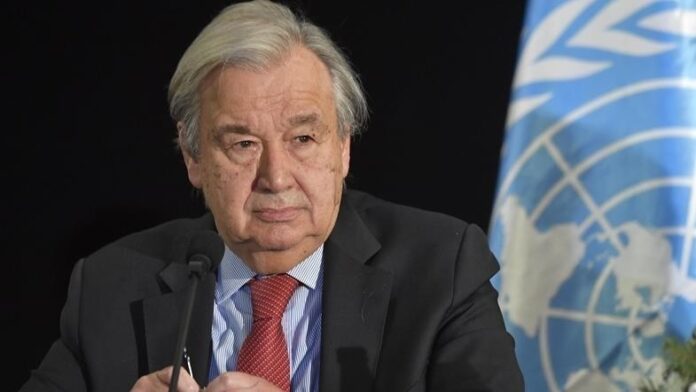UN Secretary-General António Guterres has condemned the detention of 10 more UN personnel by Houthi rebels in Yemen, describing the arrests as arbitrary and unlawful.
The new detentions bring the total number of UN staff held by the Houthis to 54 since 2021.
“The Secretary-General strongly condemns this arbitrary detention of UN personnel, as well as that of our partners, and the ongoing unlawful seizure of UN premises and assets in areas under Houthi control,” UN Spokesman Stéphane Dujarric said on Tuesday in New York.
“These actions hinder the UN’s ability to operate in Yemen and to deliver critical assistance,” he added.
The Houthis, officially known as the Ansar Allah movement, have been fighting Yemen’s internationally recognized government for more than a decade. They control large parts of the country, including the capital Sana’a, and have increasingly targeted humanitarian workers.
In addition to UN employees, the group is holding staff from international and national NGOs, civil society groups, and diplomatic missions. All those detained are Yemeni nationals.
Since the war in Gaza began, the Houthis have stepped up attacks on Israeli and commercial vessels in the Red Sea, claiming the strikes are acts of solidarity with Palestinians. They have also launched drone and missile attacks against Israel.
Guterres repeated his demand for the “immediate and unconditional” release of all detained UN and humanitarian personnel, stressing that they must be respected and protected under international law.
He also reminded the Houthis that UN premises and assets are inviolable and must not be seized.
“The United Nations will continue to work tirelessly, and through all available channels, to secure the safe and immediate release of all arbitrarily detained personnel, as well as the return of UN agency offices and other assets,” Dujarric said.
Guterres reaffirmed the UN’s commitment to supporting the people of Yemen and their hopes for a lasting peace.
Yemen remains gripped by violence and a worsening hunger crisis that threatens millions with starvation and risks destabilizing neighbouring countries, further straining humanitarian efforts across the region.

